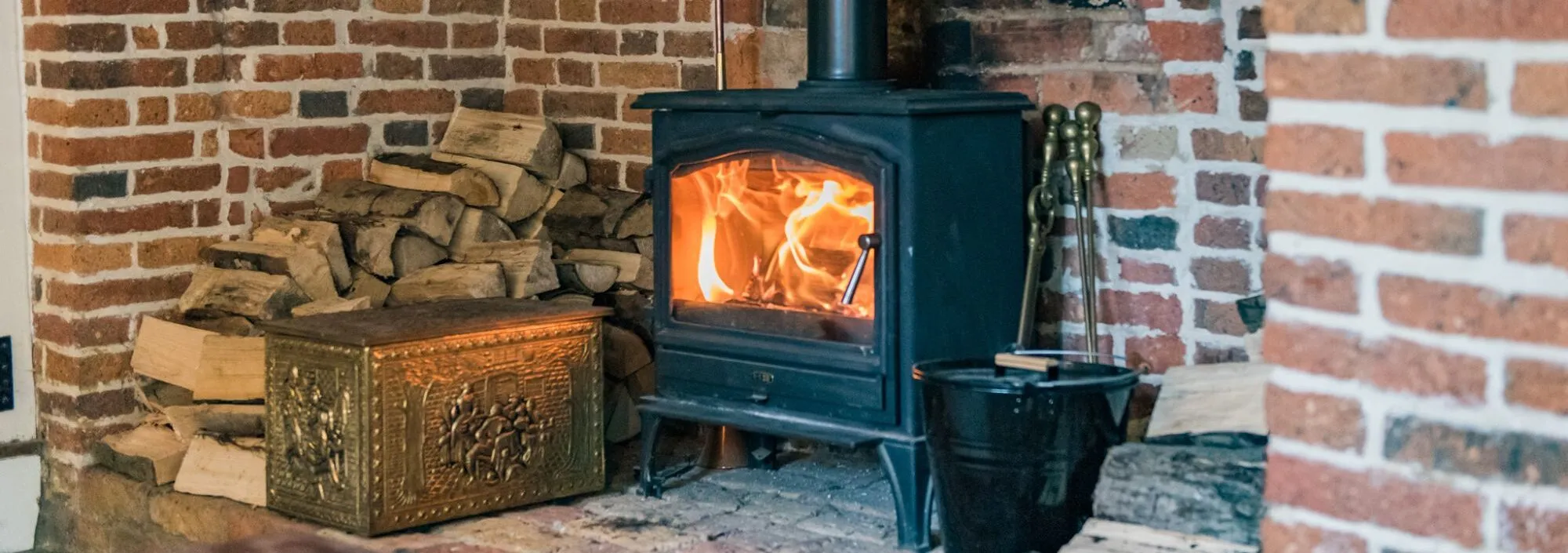Fire safety regulations for holiday homes in England
Keeping your holiday home safe from fire risk isn’t just good practice – it’s a legal requirement. Since 1 October 2023, all holiday let properties in England and Wales must have full-length, written fire safety assessments and fire safety measures in place before you welcome guests. In this guide, we help owners navigate these regulations, and explain your obligations to ensure both compliance and guest safety.
What Fire Safety Law Means for Your Holiday Let and You
If you let your property to paying guests, whether it’s self-catering cottages, town flats, cabins, or shepherd’s huts, you fall under the Regulatory Reform (Fire Safety) Order 2005. This legislation applies regardless of the size or type of property and places responsibility squarely on the owner (the “responsible person”) to manage fire risks and protect occupants.
Failing to comply isn’t a minor oversight: enforcement action can include unlimited fines, prosecution, and in serious cases imprisonment. It may also affect your insurance cover if a claim arises from a fire incident.
Fire safety guidelines are in place to help keep properties and guests safe, which is why it’s so important to know and understand any changes.

What does the guidance say?
To help our owners understand the regulations, we have pulled the main points from the government’s fire safety guidance, and shared it below:
1. Carry Out a Written Fire Risk Assessment
It is a legal requirement to have a Fire Risk Assessment (FRA) carried out and recorded for your property. A copy of the Fire Risk Assessment should also be displayed in your property, ideally in your Welcome Folder. We strongly recommend that this is carried out by a professional FRA company who will be fully up-to-date with legislation, and can demonstrate they have the competency required to consider all risks. For larger and more complex properties, it is extremely unlikely that the average property owner will have suitable and sufficient experience to be able to thoroughly evaluate the level of risk.
When it comes to finding a professional to conduct the Fire Risk Assessment at your property, we’d recommend doing a Google search and looking for a ‘fire safety risk assessor.’ It is always worth checking that they’re an accredited assessor too. You can use the following sites to find accredited assessors: Fire Sector Federation | The Institution of Fire Engineers | The Institute of Fire Prevention Officers
2. Provide and Label Safe Escape Routes
Emergency escape lighting is required in bedrooms and along the escape route; this can be provided by plug-in torches, although larger properties may need full escape lighting. Protected escape routes must also have doors with a 30-minute fire protection capability, or an adaptation that offers this level of protection.
3. Install and Maintain Detection and Alarm Systems
Interlinked smoke detectors are now required in all rooms and protected escape routes, i.e. hallways, corridors, staircases, sitting rooms and dining rooms leading to the main fire exit. Larger properties or those with complex layouts may need more sophisticated detection systems.
4. Fire Safety Equipment and Checks
All hot water and heating systems must be inspected annually, including systems powered by renewable energy e.g air/ground source heat pumps. Thumb turn locks are also now strongly recommended on all exit doors. There would be very few instances where it would be deemed unnecessary to fit these, and they can usually be retrofitted to most doors.
The EICR (fixed wiring check) is required every 5 years. Chimneys should be swept annually. And weekly checks on all fire safety equipment must be carried out and recorded.
5. Update Guest Information and House Rules
Good guest communication is part of compliance; we recommend owners include fire safety instructions and escape plans in your Welcome Pack, alongside policies for high-risk items like open flames. Candles and smoking inside your property should be prohibited. This not only protects your guests, but can reduce risk and potential liability.
For larger and/or more complex properties, the Fire Safety Risk Assessment: Sleeping Accommodation document applies. The government has also issued guidance that applies to properties of ‘small paying guest accommodation’. Please refer to these documents for more in-depth guidance on fire safety.

Summary Checklist: Next Steps for Owners
- Schedule or review your latest Fire Risk Assessment
- Ensure alarms and detection systems are in place and interlinked
- Confirm clear and compliant escape routes
- Verify emergency lighting and safety equipment
- Record and display guest fire safety information
- Set up a routine testing and maintenance log
If you feel unsure at any stage, engaging a qualified fire safety assessor is a prudent investment, giving peace of mind and protecting both your guests and your property.


